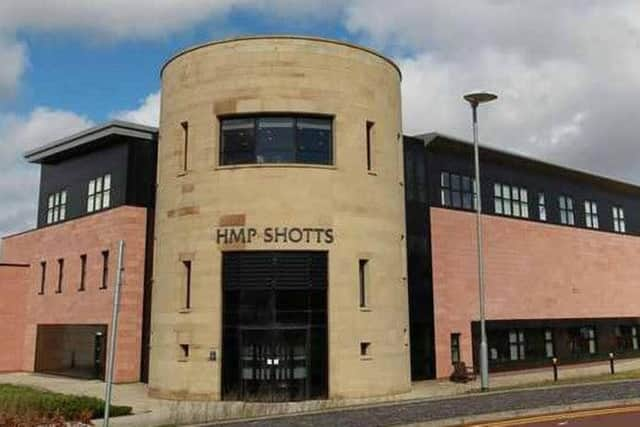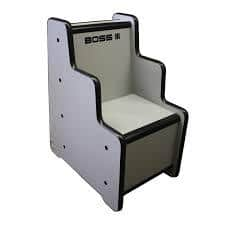Inmates handed drug-soaked letters when they are freed from Scottish prisons
Keith Brown announced the plans after he was asked about six inmates at HMP Shotts in Lanarkshire requiring medical treatment over the weekend after suffering suspected overdoses.
He revealed plans to only give photocopied versions of letters and documents to inmates as paper soaked in diluted drugs is getting through undetected to prisoners.
Advertisement
Hide AdAdvertisement
Hide AdThe Scottish Prison Service(SPS) has led the way nationally in the fight to stem the flow of drugs, introducing special detection devices that indicate narcotics soaked in paper. The SPS also has a pack of 30 sniffer dogs, special Body Orifice Security Scanner chairs and hand-held detection devices and also uses intelligence gathering, random searches and tests.


However, potent new psychoactive substances – including ‘spice’ – can be so powerful that even a tiny piece of paper with a concentrated dose is sufficiently potent to put life at risk.
Scottish Conservative MSP Russell Findlay, who challenged Mr Brown about the overdoses, warned that it was prison policy to return “drug-soaked mail” to prisoners when they are released and said worried prison officers “feel complicit in what they describe as state-sponsored drug dealing”.
Mr Brown told MSPs: “The use of illegal drugs in prisons can’t be tolerated and the prison service has a comprehensive range of robust security measures in place to prevent the introduction of contraband to entering our prisons.


“I’m pleased to confirm today in addition to that – after detailed operational consideration, which is necessary – the decision has been taken to implement photocopying of general correspondence.”
The proposal will require the backing of parliament and will have to be considered by Holyrood’s Justice Committee before being implemented.
Mr Findlay said the announcement was “welcome, but long overdue” and raised the issue of drug contraband rarely being collected by Police Scotland despite being reported to them.
Reading a letter from the prison service setting out their policy about belongings discovered to contain drugs, he added: “The drug-soaked items are stored, then handed to prisoners upon their release from custody.


Advertisement
Hide AdAdvertisement
Hide Ad“Officers are angry and worried. They feel complicit in what they describe as state-sponsored drug dealing.
“Can the Cabinet Secretary explain this extraordinary policy?”
Mr Brown replied: “I don’t think it’s right to call prison officers drug dealers, even to try and make a political point, in my view.
“However, it is a serious issue. It is one he knows – I’m sure, if he has had correspondence from the interim chief executive – that is being taken very seriously, and has been discussed with the police as well.”


READ MORE: Hundreds of drug-related items confiscated from inmates in Glasgow prison since start of lockdown
During an evidence session of the parliament’s Justice Committee last month, HM Inspectorate of Prisons for Scotland, Wendy Sinclair-Gieben, said that despite staff being “phenomenal” at preventing many drugs getting in, it was still a “major, major issue”.
Ms Sinclair-Gieben said. “It’s a major problem in prison, it’s a major problem stopping it coming in, and it’s a major problem providing support and rehabilitation to prevent people wanting to take drugs.”